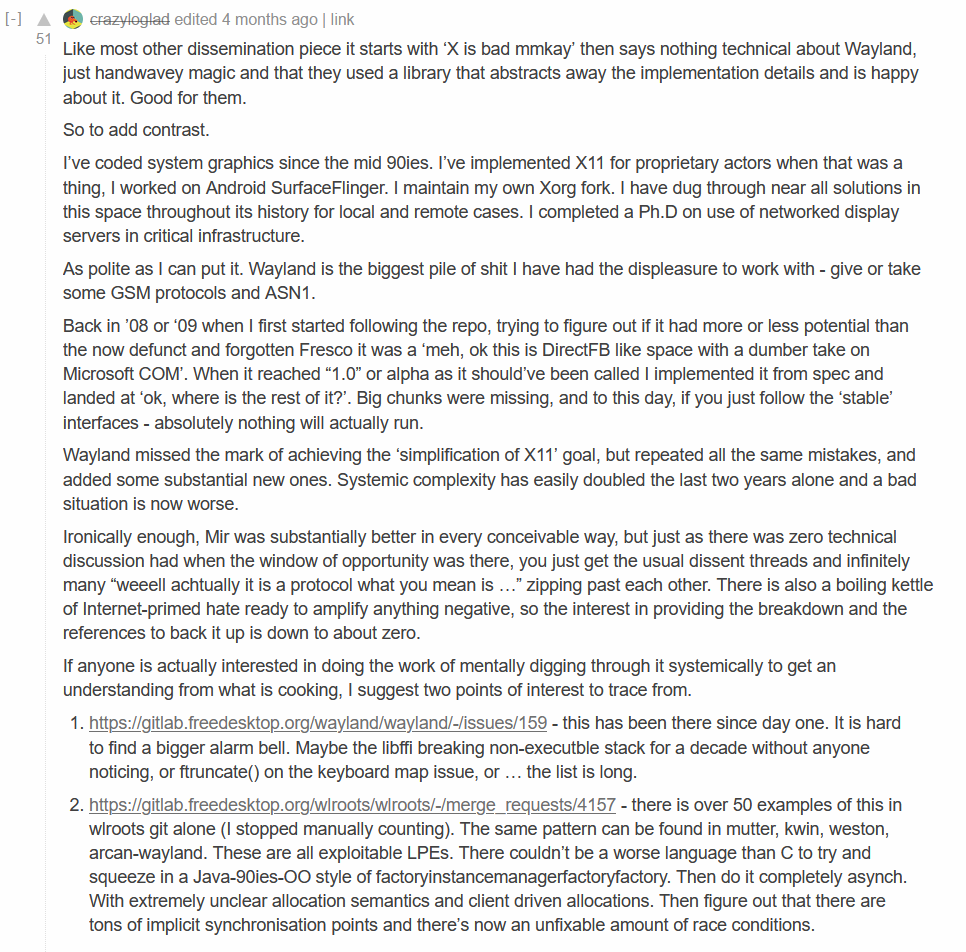This has Systemd vs Runit vibes. No matter how many anti-systemd folks scream to me about how horrible it is for XYZ technical reasons, every Linux distro I've ever used for years, desktop and server, has used systemd and I've never experienced single problem that those users claim I will.
Same here with Wayland. All the major desktop environments and distros have or are implementing Wayland support and are phasing out X. The only reason I'm not on Wayland on my main computer already is because of a few minor bugs that should be ironed out in the next 6-12 months with the newest release of plasma.
It's not because Wayland is unusable. I try switching to Wayland about every 6-9 months, and every time there have been fewer bugs and the bugs that exist are less and less intrusive.
Any time you get hardcore enthusiasts and technical people together in large community, this will happen. The mechanical keyboard community is the same way, people arguing about what specific formula of dielectric grease is optimal to lube your switches with and what specific method of applying it is best.
At a certain point, it becomes fundamentalism, like comic book enthusiasts arguing about timeline forks between series or theology majors fighting about some minutia in a 4th century manuscript fragment. Neither person is going to change their views, they are just practicing their arguments back and forth in ever-narrowing scopes of pros and cons, technical jargon, and the like.
Meanwhile the vast majority of users couldn't care less, and just want to play games, browse the web, and chat with friends, all of which is completely functional in Wayland and has been for a while.
